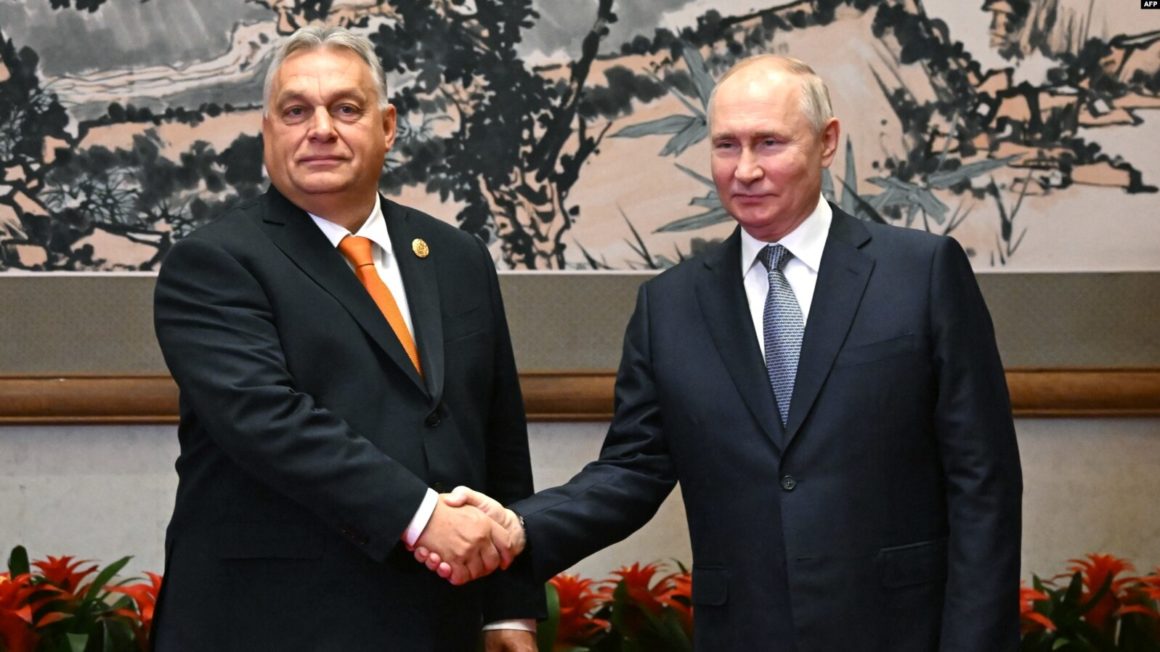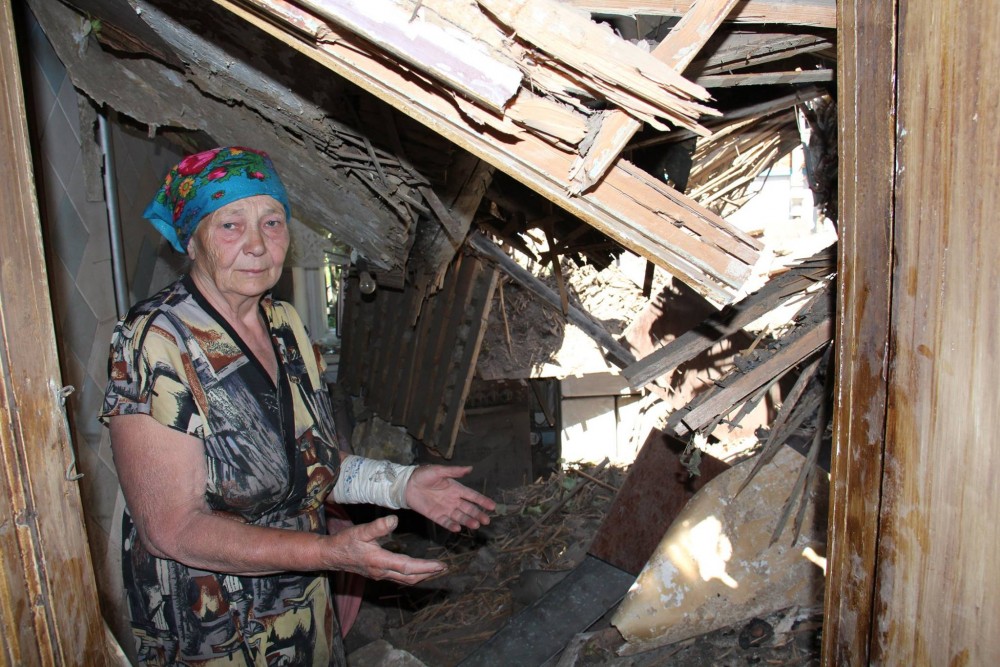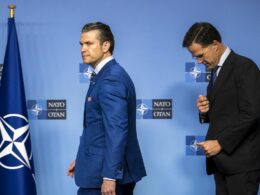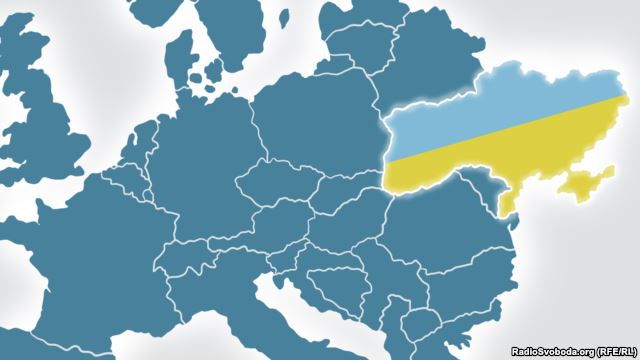European Council President Charles Michel will visit Budapest on Monday for bilateral talks with Prime Minister Viktor Orban as part of preparations for the European Council meeting on 14-15 December, his spokeswoman Ecaterina Casinge announced on X (Twitter).
❗️On Monday, @eucopresident @CharlesMichel will be travelling to Hungary for a bilateral meeting with @PM_ViktorOrban in preparation of the European Council.
— Ecaterina Casinge (@ecasinge) November 23, 2023
This visit comes in the wake of Orban's recent letter to Michel in which the Hungarian Prime Minister threatened to block all European Union assistance to Ukraine and the country's future EU accession if EU leaders do not agree to reconsider their support strategy for Kyiv.
These issues will be discussed by EU leaders at the summit on December 14-15, where the bloc is expected to approve to start accession negotiations with Ukraine and Moldova.
Hungary's veto is seen as the main stumbling block for the positive outcome of the summit, with a senior EU official telling Reuters that expectations for a decision were "at risk." The same official said there was also no unanimity in to grant Kyiv a further 50 billion euros ($54 bln) in aid, money that goes towards funding Ukraine's cash-stripped government.
Ahead of Michel's visit, the European Council unblocked $980 million in payments to Hungary, frozen over due to concerns over corruption under Prime Minister Viktor Orban, as it sought to overcome Budapest’s veto of aid to Ukraine.
Orban's "ultimatum"
In the letter, initially reported by Politico, Orban demands to review the entire strategy of support for Kyiv, and insists that no opening of accession talks to the EU, or further sanctions against Russia can be taken until this “strategic discussion” happens during the summit in Brussels.
Amid Ukraine's stalled counteroffensive, Orban demanded the European Council should assess its "current policies towards Ukraine including various assistance programs,” and "have a frank and open discussion on the feasibility of the EU’s strategic objectives in Ukraine," asking if it the EU's strategy is sustainable "without robust support from the United States," where partisan deadlock has put future military aid for Ukraine on hold.
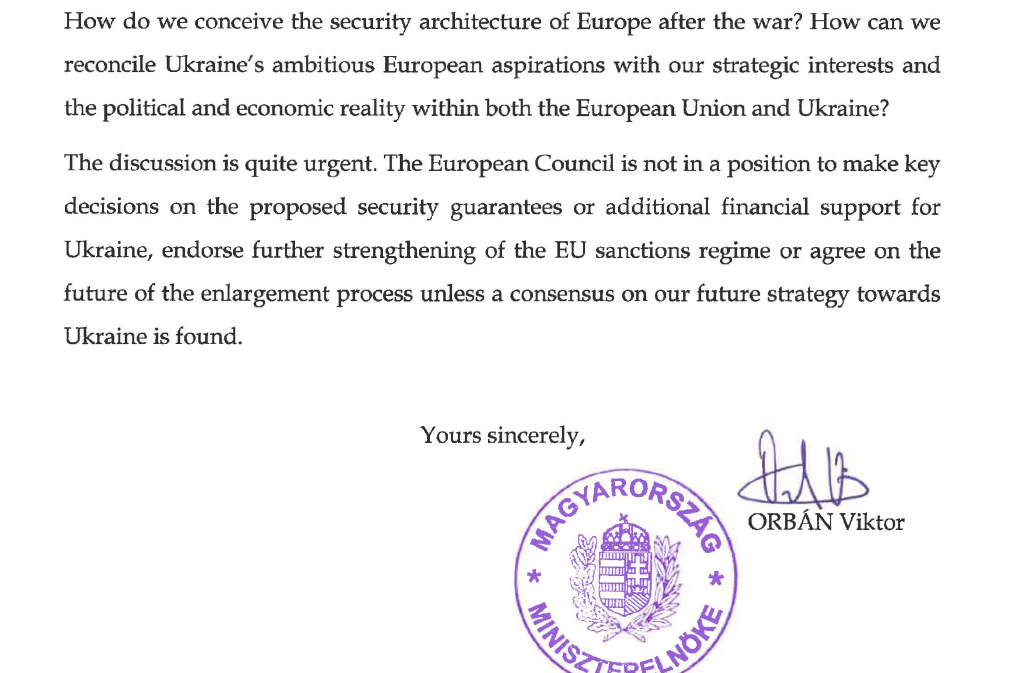
"How do we conceive the security architecture of Europe after the war? How can we reconcile Ukraine's ambitious European aspirations with our strategic interests and the political and economic reality within both the European Union and Ukraine?
The discussion is quite urgent. The European Council is not in a position to make key decisions on the proposed security guarantees or additional financial support for Ukraine, endorse further strengthening of the EU sanctions regime or agree on the future of the enlargement process unless a consensus on our future strategy towards Ukraine is found," Orban writes.
These theses were interpreted as an ultimatum by European media, but it is noteworthy that the letter does not contain his promise to veto these decisions. The more vague wording is no coincidence, believes European Pravda editor Serhii Sydorenko -- it gives the Hungarian leader the opportunity to choose any option.
Even more vague is the wording that the EU cannot "agree on the future of the enlargement process," as during the summit, a much more precise decision will be made regarding Ukraine - the formal start of negotiations. This also will allow Orban to make any choice, with the outcome not being predetermined, Sydorenko believes.
Notably, in the letter, Orban does not mention the usual reason for Hungary's blocking of Ukraine's Euroatlantic integraiton -- accusations of Kyiv mistreating the Hungarian ethnic minorities. Likely, the points regarding the war were chosen to appeal to a wider circle of EU leaders.
Similar move by Hungary in 2018
Hungary is now repeating the same actions it took five years ago in June-July 2018. At that time, three weeks before a NATO summit in Brussels, Hungary's foreign minister Peter Szijjártó sent an official letter to NATO headquarters making demands that were impossible to meet.
Specifically, Hungary threatened to veto any decisions made at a planned NATO-Ukraine-Georgia summit unless Ukraine revoked its education law and other minority rights legislation. Hungary later leaked the letter to the media, causing alarm that the summit would fail without Hungary lifting its veto.
However, right before the NATO leader meeting, Hungary unexpectedly softened its position, claiming it only wanted to block bilateral NATO-Ukraine decisions, not trilateral summit decisions. Since no NATO-Ukraine bilateral decisions were planned, this threat was rendered meaningless.
Trending Now
It is unknown what specifically prompted Hungary's flip-flop at the time. Similarly, Hungarian PM Viktor Orbán's recent 2023 letter to EU leaders also leaves room for Hungary to abruptly change its position. So Hungary's current threats over EU funding for Ukraine echo its actions in 2018 regarding the NATO summit.
Orban's flip-flop ahead of Russian nuclear deal
While the extent of Russia's influence on Orban's actions is yet unclear, one thing remains a fact: Orban's position changed after personally meeting with Putin in Beijing on 17 October, European Pravda reports.
Earlier in September, Hungary officially told Ukraine it was ready to compromise on Ukraine's language law. The 2017 law, stipulating that education in schools from grade five and higher must be in Ukrainian, has been the bone of contention between the two countries, as Hungary insisted that Ukraine continue allowing Hungarian minorities to have Hungarian as the language of instruction.
The two governments met in Budapest and Ukraine gave Hungary a "roadmap" which was received positively. Yet suddenly everything stopped: on 7 November, Balazs Orban, Political Director to Hungarian Prime Minister Viktor Orban, said that Hungary will block the start of EU accession talks with Ukraine until Hungarian demands are met regarding language education for minorities, and on 10 November, Orban spoke out against the EU starting negotiations on accession with Ukraine.
Just one week after, on 17 November, Moscow gave Budapest written guarantees about plans to build new nuclear reactor blocks for the Pask II project in Hungary, a 12 billion euro project relying on Russian state loans.
While Orbán's motivations are unclear, the timing suggests potential Russian influence behind Hungary's obstruction of Ukraine.
How serious is Orban's threat?
The EU's $980 million unlocked for Hungary may be viewed as a sign that the bloc is serious about getting the green light for Ukraine at the summit.
Additionally, the vague language of Orban's "ultimatum" suggests that a veto is by no means decided yet. It may be that Orban intends to make a show of how he "fought like a lion" to ensure the outcome Russia needs at the EU summit but faced too much resistance from the other EU members, Sydorenko writes.
Kyiv is also working to ensure a positive outcome at the summit. The EU Commission's recommendation that the bloc starts negotiations in mid-December, made on 4 November, came with seven recommendations of what Kyiv still needs to do to meet the requirements.
Brussels backs EU membership talks for Ukraine. Here’s what happens next
According to Ukrainian President Zelenskyy, Ukraine is working on implementing these recommendations "in full," "so that there are no questions to us, no opportunities to say that Ukraine has not fulfilled something. This is the strongest position that Ukraine can be in."
These recommendations include amending Ukraine's language law. And this is prone to be a future zone of conflict.
A draft project shows that Ukraine is considering fully rolling back its language policies back to 2017, which would allow compact Romanian and Hungarian minorities to remain isolated in enclaves where virtually no Ukrainian is spoken.
This step is sure to cause discontent within Ukraine, where strides have been made since 2017 to strengthen the position of Ukrainian after centuries of being dominated by Russian.
Related:
- Brussels backs EU membership talks for Ukraine. Here’s what happens next
- EU prepares “plan B” as Hungary blocks € 500 mn of Ukraine aid

